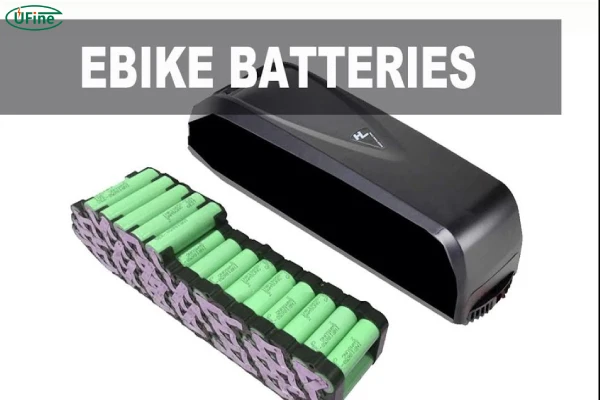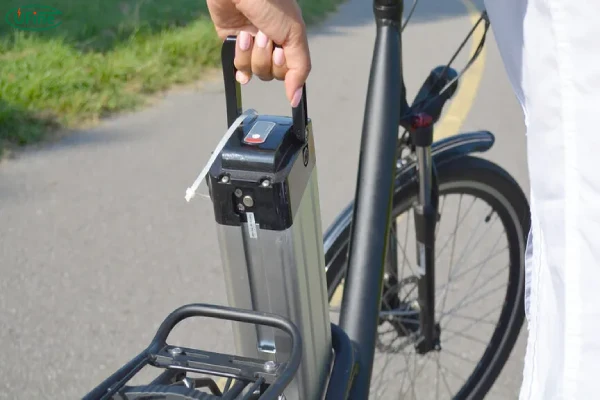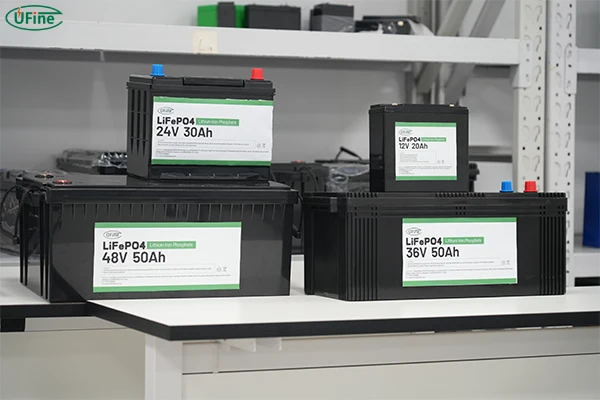Ever wondered why bike battery prices vary so much? One model might cost $100, while another could set you back $800. It’s not just about how the battery looks or even the brand name—it’s about a mix of technology, capacity, performance, and a little bit of market magic.
In this guide, we’ll break it all down. You’ll learn what factors influence bike battery prices, the price ranges for different types of batteries, and even tips on where to find the best deals. Let’s dive in and make sense of it all.
Part 1. What affects bike battery prices?
Several factors determine the price of a bike battery, and understanding these can save you from overpaying—or buying a battery that’s not right for your needs.
1. Type of Bike Battery Chemistry
The biggest influence on price is the type of battery. Modern bikes mostly use lithium-based batteries because they’re lightweight, powerful, and long-lasting. However, older and budget bikes might still rely on lead-acid batteries, which are heavier and less efficient.
- Lead-Acid Batteries: Cheapest, but heavy and short-lived.
- Lithium-Ion Batteries: Mid-range in cost, with good performance and longevity.
- LiFePO4 Batteries: Expensive but incredibly durable and safe.
2. Bike Battery Capacity
Capacity determines how far you can ride on a single charge. Measured in ampere-hours (Ah), higher capacity batteries are more expensive because they store more energy and require additional materials.
- Example: A 10Ah battery might cost $150, while a 30Ah battery could cost $600 or more.
3. Bike Battery Voltage
Voltage affects power delivery. Higher-voltage batteries (like 72V) provide more speed and torque, but they’re pricier because they use more cells and advanced components.
4. Brand and Quality
Big names like Bosch, LG, or Samsung often charge more, but they deliver top-tier quality and better warranties. Cheaper, no-name brands might save you money upfront but could cost you in the long run if they fail prematurely.
5. Production Costs and Import Taxes
Manufacturing location, shipping, and taxes also influence the price. Batteries made in regions with lower labor costs might be cheaper but could have inconsistent quality.
Part 2. Different types of bike battery prices
Bike batteries come in a variety of types, each with its own price range. Let’s break them down:
Lead-Acid Batteries
- Price Range: $50–$150
- Overview: These are the cheapest option but are heavy, bulky, and have a short lifespan (1–3 years). Best for older or budget electric bikes.
Lithium-Ion Batteries
- Price Range: $200–$600
- Overview: These are the most common in modern bikes. They’re lightweight, efficient, and last 3–5 years on average.
Lithium Iron Phosphate (LiFePO4) Batteries
- Price Range: $300–$800
- Overview: Known for safety and longevity, these batteries are perfect for heavy-duty use. They last up to 8 years or more but are heavier than standard lithium-ion options.
A Comparative Analysis of LiFePO4 vs. Lead Acid
Part 3. The higher the capacity, the more expensive the bike battery
Why Does Capacity Matter?
Battery capacity, measured in ampere-hours (Ah), determines how much energy the battery can store. The higher the capacity, the longer your bike can travel on a single charge. But higher capacity requires more materials, advanced engineering, and better thermal management, all of which add to the cost.
- Low Capacity (10–15Ah): $150–$300. Suitable for short commutes and lightweight bikes.
- Mid Capacity (20–30Ah): $300–$600. Ideal for long-distance rides.
- High Capacity (Above 30Ah): $600–$1,000. Designed for high-performance bikes and extended travel.
If you’re someone who loves long bike rides or commutes every day, investing in a higher-capacity battery makes sense.
Part 4. Does higher voltage mean a higher bike battery price?
Voltage is a measure of the battery’s power output. Higher-voltage batteries provide more torque and speed, making them perfect for performance-oriented riders.
The Cost of Higher Voltage
Higher voltage doesn’t just mean more cells—it also means better insulation, advanced controllers, and improved safety features. All of these contribute to a higher price tag.
- 36V Batteries: $150–$300. Common in budget e-bikes.
- 48V Batteries: $300–$600. A standard choice for moderate performance.
- 72V Batteries: $600–$1,200. Best for high-performance bikes and demanding riders.
If you’re into off-road biking or want a powerful bike that can tackle steep hills, investing in a higher-voltage battery is worth considering.
Part 5. Popular bike battery brands
Choosing a reliable brand is crucial for long-term performance and safety. Here are some of the top names in the bike battery world:
- Bosch: Known for their premium quality and advanced technology.
- Samsung SDI: A leader in lithium-ion battery cells.
- LG Chem: Renowned for durability and consistent performance.
- Panasonic: Offers excellent energy density and reliability.
- Phylion: Budget-friendly options with decent quality.
- Shimano STEPS: Specializes in e-bike systems with integrated batteries.
- Ufine Battery: A trusted manufacturer of custom lithium batteries.
Choosing a well-known brand often ensures better performance and longer warranties.
Part 6. Where to buy the cheapest bike battery?
Looking for the best deals on bike batteries? Here’s where you can start:
- Online Retailers: Websites like Amazon, eBay, and AliExpress often have competitive prices, especially during sales.
- Local Bike Shops: Check for discounts or trade-in programs.
- Direct from Manufacturers: Companies like Ufine Battery offer competitive pricing by cutting out middlemen.
- Secondhand Market: Platforms like Craigslist or Facebook Marketplace may have affordable used options, but inspect carefully before buying.
Always compare prices and warranties. A cheap battery isn’t a deal if it fails in a year.
Part 7. Ufine Battery: a custom bike battery manufacturer
If you need a reliable, high-quality bike battery, Ufine Battery is a fantastic choice. They specialize in lithium batteries and offer customization options for all kinds of needs.
Why Choose Ufine Battery?
- Wide Range: From lithium-ion to LiFePO4, they’ve got you covered.
- Customization: Need a specific size, shape, or capacity? Ufine can build it for you.
- Affordable Pricing: By selling directly, Ufine offers excellent value for money.
- Quality Assurance: Every battery is rigorously tested for safety and performance.
Ready to find the perfect battery? Contact Ufine Battery today and get a custom quote.
Part 8. Conclusion
Bike battery prices depend on several factors, from the type and capacity to voltage and brand. While cheaper options might seem tempting, investing in a high-quality battery often pays off with better performance, safety, and longevity.
Take the time to compare your options, and don’t hesitate to reach out to trusted manufacturers like Ufine Battery for a custom solution. A great bike battery isn’t just a purchase—it’s an investment in your riding experience.
Related Tags:
More Articles

How to Choose the Best Floor Scrubber Battery for Commercial Cleaning?
Selecting the ideal floor scrubber battery ensures a long runtime, rapid charging, and minimal maintenance for efficient commercial cleaning operations.
Battery for Blower vs Battery for Leaf Vacuum: Which One Should You Choose?
Battery for blower vs leaf vacuum—learn the key differences in power, fit, and runtime to choose the right battery for your outdoor tool needs.
How to Choose the Right Battery for Blower?
Choosing the right blower battery? Consider voltage, capacity, chemistry & usage. This guide helps match the best battery for peak performance.
How to Choose the Best Insulated Battery Box for Lithium Batteries?
Choosing the Best Insulated Battery Box for Lithium Batteries? Discover key factors such as size, material, and safety for optimal protection and performance.
7 Critical Elements on a Lithium Battery Shipping Label
What must be on a lithium battery shipping label? Learn 7 key elements to ensure safety, legal compliance, and correct handling across all transport modes.







